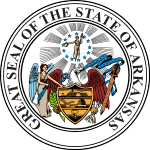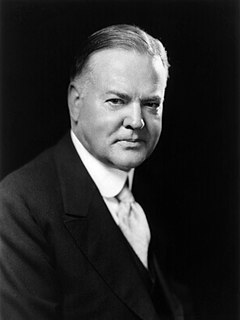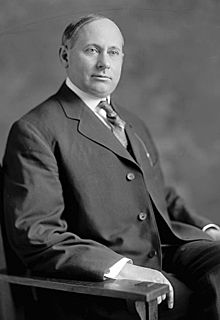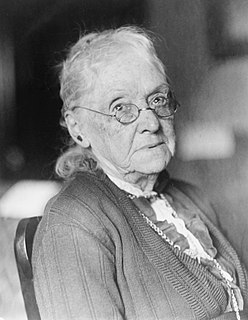| Elections in Arkansas | ||||||||||
|---|---|---|---|---|---|---|---|---|---|---|
 | ||||||||||
| ||||||||||
Arkansas held a general election on November 8, 1932. At the top of the ticket, Franklin D. Roosevelt won the state handily in his successful bid to become 32nd President of the United States. Arkansans elected Hattie Caraway to the United States Senate, the first woman elected to a full term in history. For the United States House of Representatives, Bill Cravens, a former Representative from 1907 to 1913, returned to politics and defeated a wide field in the Arkansas 4th. Tilman Parks defeated several challengers to retain the Arkansas 7th. All of Arkansas's statewide constitutional offices were up for reelection, including governor. Incumbent Harvey Parnell declined to run for reelection, and was supplanted by Junius Marion Futrell.

Arkansas is a state in the southern region of the United States, home to over 3 million people as of 2018. Its name is of Siouan derivation from the language of the Osage denoting their related kin, the Quapaw Indians. The state's diverse geography ranges from the mountainous regions of the Ozark and the Ouachita Mountains, which make up the U.S. Interior Highlands, to the densely forested land in the south known as the Arkansas Timberlands, to the eastern lowlands along the Mississippi River and the Arkansas Delta.

Franklin Delano Roosevelt, often referred to by his initials FDR, was an American statesman and political leader who served as the 32nd president of the United States from 1933 until his death in 1945. A Democrat, he won a record four presidential elections and became a central figure in world events during the first half of the 20th century. Roosevelt directed the federal government during most of the Great Depression, implementing his New Deal domestic agenda in response to the worst economic crisis in U.S. history. As a dominant leader of his party, he built the New Deal Coalition, which realigned American politics into the Fifth Party System and defined American liberalism throughout the middle third of the 20th century. His third and fourth terms were dominated by World War II. Roosevelt is widely considered to be one of the most important figures in American history, as well as among the most influential figures of the 20th century. Though he has also been subject to much criticism, he is generally rated by scholars as one of the three greatest U.S. presidents, along with George Washington and Abraham Lincoln.

The United States Senate is the upper chamber of the United States Congress, which along with the United States House of Representatives—the lower chamber—comprises the legislature of the United States. The Senate chamber is located in the north wing of the Capitol, in Washington, D.C.
Contents
- President
- Federal
- United States Senate
- United States House
- State
- Governor
- Lieutenant Governor
- Constitutional offices
- See also
- References
During the Solid South, the Democratic Party held firm control of virtually every office in The South, including Arkansas. Winning the Democratic primary was considered tantamount to election, with several different factions of the party battling in the open primaries. The election was held a few years into the Great Depression, and Americans and Arkansans battling steep unemployment and poverty sought politicians and policies to remedy the economic malaise.

For the play titled Solid South see Lawton Campbell

The Democratic Party is one of the two major contemporary political parties in the United States, along with the Republican Party. Tracing its heritage back to Thomas Jefferson and James Madison's Democratic-Republican Party, the modern-day Democratic Party was founded around 1828 by supporters of Andrew Jackson, making it the world's oldest active political party. The Democrats' dominant worldview was once social conservatism and economic liberalism while populism was its leading characteristic in the rural South. In 1912, Theodore Roosevelt ran as a third-party candidate in the Progressive Party, beginning a switch of political platforms between the Democratic and Republican Party over the coming decades, and leading to Woodrow Wilson being elected as the first fiscally progressive Democrat. Since Franklin D. Roosevelt and his New Deal coalition in the 1930s, the Democratic Party has also promoted a social liberal platform, supporting social justice.

The southern United States, also known as the American South, Dixie, Dixieland, or simply the South, is a region of the United States of America. It is located between the Atlantic Ocean and the western United States, with the midwestern United States and northeastern United States to its north and the Gulf of Mexico and Mexico to its south.
Though the state elected big government-liberal Franklin Roosevelt, Futrell represented a realignment toward severe cuts and retrenchment in the governor's mansion. Conservative, small-government Democrats also took state senate and state representative positions across Arkansas. Though 1932 is considered a realignment election nationally toward Democrats and larger government, in Arkansas, Futrell was the most conservative governor elected in decades, marking a shift from Progressive Era-type politicians in Arkansas.
Retrenchment is an act of cutting down or reduction, particularly of public expenditure.
The Progressive Era was a period of widespread social activism and political reform across the United States that spanned from the 1890s to the 1920s. The main objectives of the Progressive movement were eliminating problems caused by industrialization, urbanization, immigration, and political corruption. The movement primarily targeted political machines and their bosses. By taking down these corrupt representatives in office, a further means of direct democracy would be established. They also sought regulation of monopolies and corporations through antitrust laws, which were seen as a way to promote equal competition for the advantage of legitimate competitors.





















